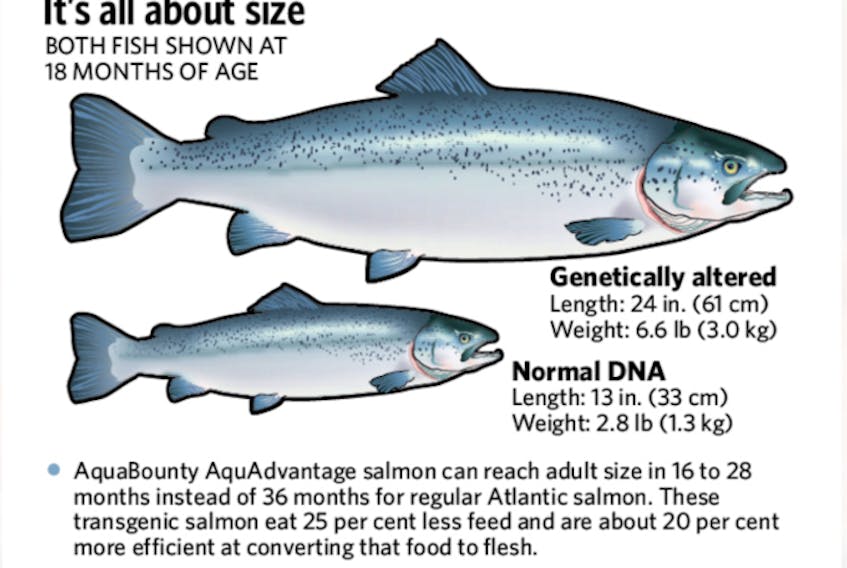BY OLE HAMMARLUND
GUEST OPINION
There are a lot of opinions going back and forth on P.E.I. regarding the pros and cons of using GMO seeds and animals. I am making the following comments just based on what I read in the newspapers and I am not claiming to be an expert.
GMO or Genetically Modified Organisms have been around for a while. The first significant advance in the field was the production of insulin by yeast or bacteria cells genetically modified to produce insulin instead of alcohol or whatever they produced before. No one seems to be suggesting that using this insulin would be harmful, nor have we heard reports about any escaped yeast cells taking over the world.
So, what is the fuss about GMO soybeans already grown here or the GMO salmon developed on P.E.I.? As far as I can figure out the various GMO products are not all the same and should not be dismissed as a group.
Humans have messed with genes for millennia. Even though we have just discovered how genes actually work, humans have been selecting for desirable genes in plants and livestock for as long as we have had agriculture. A recent example is our basic chicken raised commercially and sold in super markets. Through selective breeding over decades, a chicken now takes only ½ the time to grow up, compared to chickens 20 years ago. Similar improvements can be found in almost all commercial plant and animal breeds.
Genetic engineering on the other hand modifies the DNA in individual cell, most often importing a piece of DNA from another organism. The ‘monster’ salmon, for instance, has double the growth thanks to a growth gene imported from another fish. GMO plants typically have genes added that gives it resistance to a specific herbicide. Other seeds may have added genes that resists a particular pest, like Colorado potato beetle. Some genes even make the plant produce its own pesticide.
So, are GMO plants and animals safe to eat? There really is no consensus, although most GMO products have been banned in Europe. Personally, I think it is essential that consumers know what they are eating, so I support requirements that GMO containing food be labelled as such. However, the issue is not only about the health of the food but also about the health of the environment.
For instance, our family tries to use organic food whenever we can, for two reasons: First of all it is local and grown with care and no worry about pesticide residue on the produce. More to the point, our province’s organic farmers co-exist with the beautiful nature of our Island and you know that no fish, birds or bees are killed in the process. Large-scale chemical farmers on the other hand seriously do damage the environment, even to the extent that air cannot be safely breathed at certain times of the year.
The same seems to apply to GMO plants. They may be safe to eat, but the growing process is dependent on ever higher use of Roundup and other chemicals, that kill not only all other plants, but also many other organisms in the soil, air and water. The only way we can stop that degrading of our environment is by stop eating GMO foods. I think that we should declare P.E.I. GMO free for that very reason
The GMO salmon is different. It may be a ‘Frankenfish’ but new and more chemicals are not used in raising the fish. So, I would not hesitate to eat such fish, although I would still insist knowing exactly what I am eating. Some people are worried about escaping fish overpowering and replacing natural salmon. Seems to me that natural predators, such as native seals, would quickly take care of escapes, but clearly my opinion is purely personal.
Do we want to live in a chemical battleground or do we want to restore the health of our environment?
Ole Hammarlund, Charlottetown, Hammarlund and Lips Architects









